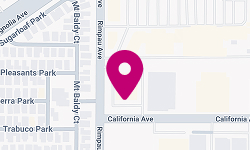
















California Employment Law Attorney
Representing Employees Who Were Treated Unfairly in Orange County, Riverside County, and San Bernardino County
At the Law Office of Joseph Richards, P.C., we provide relentless, solutions-focused advocacy to employees. With the skills and experience to handle discrimination claims, retaliation claims, and a wide range of other employment law matters, clients can trust our law firm to provide personalized legal representation.
If you have any questions about an employment law issue, we are more than ready to help you schedule an appointment. To set up a completely confidential initial consultation with a top-rated Southern California employment law attorney, please contact us at our Corona office or Santa Ana office at (888) 883-6588.
We Fight for the Rights of Employees in the Inland Empire
Your career is your livelihood. Discrimination, harassment, or other forms of unjust treatment in the workplace could take a real financial (and emotional) toll on our clients and their families. Our law firm advocates for employee rights. We provide full-service legal representation to employees across a wide array of workplace matters.
If you believe that you were subject to unfair treatment by an employer, the employment law attorneys at the Law Office of Joseph Richards, P.C. is standing by, ready to help you schedule an appointment for a free consultation to determine the best course of action.
Employment law matters we handle in Inland Empire include:
- Employment Law: We may be able to advise on the full range of employment law matters, including discrimination issues, wage and hour claims, sexual harassment, employment contracts, and wrongful termination and wrongful discharges. Our clients do not have to go up against an employer alone. Contact our California employment lawyer for immediate help with scheduling a consultation for your potential case.
- Age Discrimination: Older workers should not be judged based on prejudicial bias and stereotypes about their age. There are state and federal regulations in place—including the California Fair Employment and Housing Act (FEHA) and the Age Discrimination in Employment Act of 1967 (ADEA)— that protect older workers against mistreatment on the basis of age. Call our California age discrimination attorney for a confidential review and evaluation of your potential case.
- Sex Discrimination: Sex-based discrimination remains a serious problem in workplaces in California and throughout the United States. While women are disproportionately affected by sex-based discrimination, men can also be victims of unfair treatment because of sex and gender. Notably, LGBTQ discrimination (sexual orientation discrimination and gender identity discrimination) fall under the umbrella of sex discrimination in California.
- Sexual Harassment: Sexual harassment is a form of sex-based discrimination. Whether it is quid pro quo sexual harassment or sexual harassment resulting in a hostile work environment, no worker should be forced to endure sexual harassment on the job. If you or your loved one was subject to any form of unlawful harassing conduct, contact our Inland Empire sexual harassment lawyer for a strictly confidential consultation.
- Race Discrimination: Racism has no place in the workplace! No employee or job applicant should be treated worse than similarly qualified co-workers or job applicants because of their actual or perceived racial background. Race discrimination, ethnic discrimination, color discrimination, and national origin discrimination are prohibited by FEHA (state law) and Title VII of the Civil Rights of 1964 (federal law). Call our Inland Empire race discrimination attorney for a confidential review of your claim.
- Disability Discrimination: The Americans with Disabilities Act (ADA) is a federal law that covers employers with 15 or more employees. The ADA forbids disability discrimination in the workplace and requires covered employers to engage in a timely, good faith, interactive process to determine whether reasonable accommodations can be offered to disabled employees. If you believe that you or your loved one was subject to workplace discrimination on the basis of disability status, please contact our California disability discrimination attorney today to schedule an appointment for a free consultation.
- Leave of Absence Violations: Under certain state and federal regulations, including the Family and Medical Leave Act (FMLA), an employee may be entitled to take a leave of absence to deal with a qualifying family issue or health issue. The FMLA and its state-level counterparts provide eligible workers with job-protected leave. If an employer punishes an employee for exercising their right to take leave, they are violating that worker’s rights. Call our Inland Empire employment lawyer today for questions about a potential leave of absence case.
- Workplace Retaliation: Retaliation is the single most common basis cited in state and federal employment law cases. Retaliation occurs when an employee is punished—harassed, suspended, demoted, terminated, etc.—for exercising a legally protected right. As an example, imagine that a worker in Orange County filed a race discrimination claim against his or her employer. That employer is prohibited from punishing that employee as retribution for the discrimination claim. If you or your loved one was the victim of unlawful retaliation in the workplace after asserting some legal right, please contact our Inland Empire employment lawyer today to schedule an appointment for a free consultation today.
Joseph E. Richards in an Experienced Employee Rights Advocate
Employment law is complicated. Your career is your livelihood—it is crucial that you know how to protect your rights. Our founding attorney Joseph E. Richards is an experienced employment law attorney for employees. We are committed to putting our clients’ best interests first.
When you get in touch with our law firm, you will have the chance to consult directly with a California employment law attorney who can:
- Listen to your story and answer questions about rights and options
- Investigate the matter—securing the evidence a client needs to proceed
- Handle legal paperwork and represent clients in settlement negotiations
- Devise a strategy focused on helping clients secure the best outcome
We are Well-Positioned to Represent Employees in Orange County and the Inland Empire
With legal office locations in Corona and Santa Ana, we provide employment law representation to employees in Orange County, Riverside County, and San Bernardino County. A non-exhaustive list of communities we serve in the Inland Empire and Southern California more broadly includes:
Schedule a Confidential Consultation with Our Southern California Employment Lawyer
At the Law Office of Joseph Richards, P.C., we are standing by, ready to get started with a free legal consultation for your potential employment law case. Individual workers deserve the same top-quality employment law representation that large corporations get from big law firms. Call our top-rated Southern California employment lawyer at the Law Office of Joseph Richards, P.C., today at (888) 883-6588 to arrange your strictly confidential initial consultation.

Meet Joseph Richards
Attorney Joseph Richards is a seasoned attorney in the area of Employment law, fighting for the right of workers throughout Orange County and the Inland Empire. Mr. Richards has the knowledge and experience needed to help his clients handle discrimination claims, retaliation claims, and a wide range of other employment law matters.Frequently Asked Questions
Our Videos
HR Law Blog
Understanding California’s New Pay Transparency Requirements California continues to strengthen workplace protections through legislation aimed at promoting equality, fairness, and accountability. One of the most impactful updates in recent years is new pay transparency requirements, which expand employees’ rights and employers’ obligations...
Pregnancy And Parental Leave Rights For California Workers Pregnancy and parental leave protections play an essential role in ensuring that California employees do not have to choose between family responsibilities and financial stability. California law provides some of the strongest protections in the nation, offering rights to job-protected leave...
Do You Have To Sign That New Arbitration Agreement At Work In California In recent years, many California employees have been asked to sign new arbitration agreements as a condition of continued employment. These agreements typically require workplace disputes to be resolved through private arbitration rather than through a public court. Employers often present such...
Our Offices
STE 202
Anaheim, CA 92807
STE 120
Corona, CA 92881
Los Angeles, CA 90045
Sacramento, CA 95825
Client Reviews
Very satisfied with the service @ Law Office of Joseph E. Richards. Attorney Joseph very professional and went beyond to help my father. We were very pleased with his bilingual group.
One of the best lawyers of workers compensation in Santa Ana CA that I have known, very friendly and they explained all in spanish that is my original language.
The truth is that I have no words to recommend this lawyer, he is excellent at what he does and they also speak Spanish. Arnold Marquez was always there to answer any questions you had, I recommend it 100%










